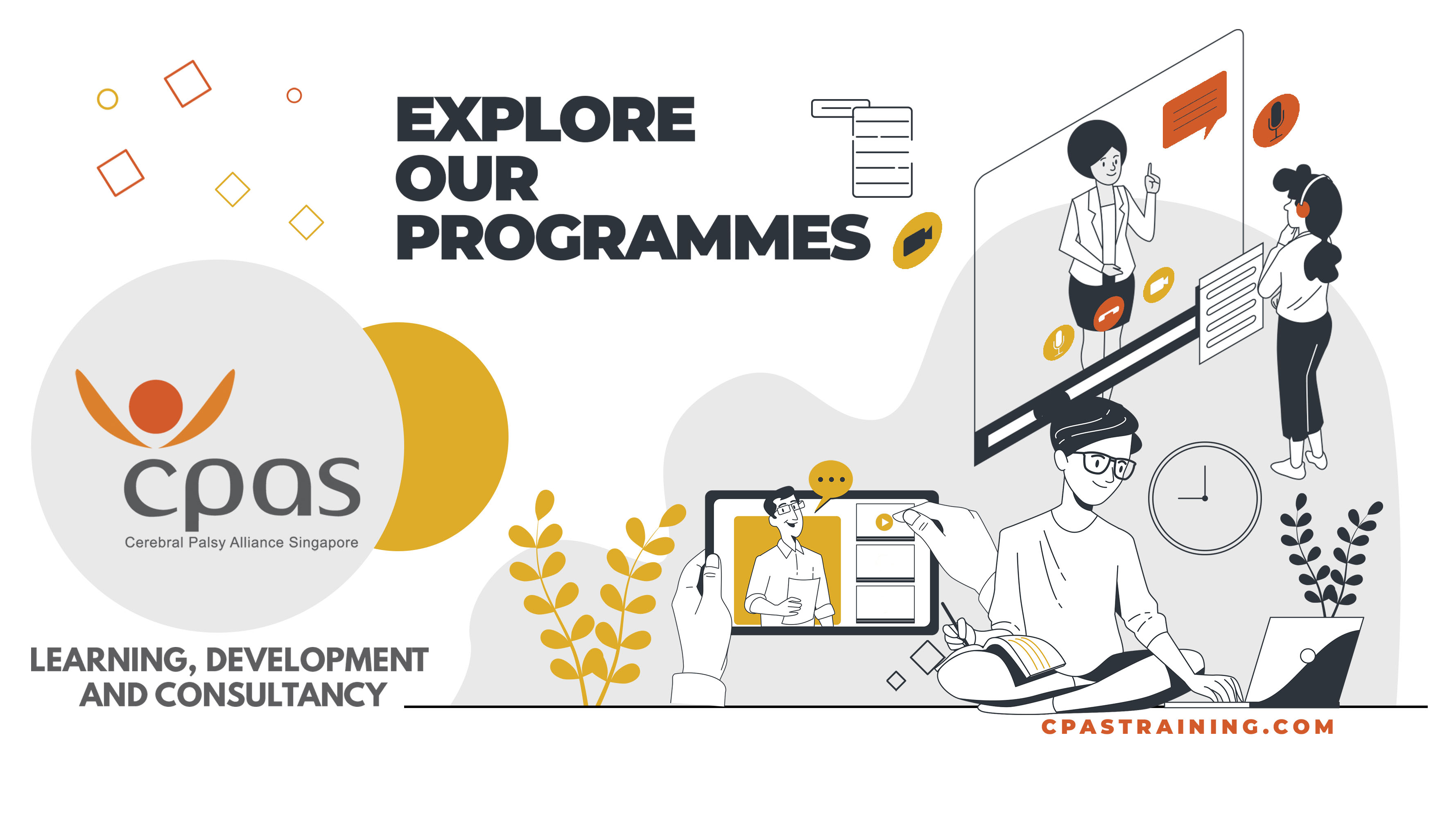Course Date
Part 1: Self – Paced (Online)
Part 2: 22 August 2024 – 23 August 2024
Registration Deadline
21 June 2024
Venue
Part 1: Online
Part 2: Cerebral Palsy Alliance Singapore
65 Pasir Ris Drive 1
Singapore 519529
Training Room Level 4
Time
Part 1: Self – Paced (8 Training Hours)
Part 2: 9:00am – 5:00pm
Early Bird Discount:
(Register by 1 March 2024): S$$1950 (before GST)
Normal Fees: $2150 (before GST)
*Pending PCG (formerly known as VCF) Approval
Course Capacity
Max: 35 participants
Targeted Participants
Occupational Therapists, Physiotherapists, Speech and Language Therapists
Course Outline
Clinicians treating children with movement challenges of upper extremity function need to know the functional anatomy, typical development, and biomechanics necessary to facilitate movements that produce measurable change in daily function. This PD training experience for PTs, OTs and SLPs is in a hybrid format combining the convenience of online theoretical learning with the practical applications from in-person hands-on experiential learning.
Part 1: Foundations of Upper Extremity Movement – On Demand Series
This online series is foundational to the in-person learning segment of the hybrid course. Through online lecture and labs, participants will expand their knowledge in the musculoskeletal, kinesiological and developmental contributions to upper extremity movement and functional skills.
Part 2: Assessment and Treatment of Upper Extremity Movement
This in-person course held in Singapore will complement the online foundational learning, allowing for assessment and treatment to be introduced and experienced by the participants first-hand. There will be group discussions, live demonstrations and active labs, offering opportunities for enhanced clinical reasoning and providing a hunger for further expertise.
Learning Outcomes
Upon completion of Part One, the participant will be able to:
- Examine functional anatomy of the upper extremity
- Distinguish the biomechanical components of functional anatomy that underly upper extremity functional skills
- Correlate developmental contributions to upper extremity functional performance
- Compare and contrast typical and compensatory upper extremity movement strategies
Upon completion of Part Two, the participant will be able to:
- Describe Neuro-Developmental Treatment principles for the treatment of upper extremity function
- Demonstrate analysis and facilitation of trunk control for upper extremity function
- Exhibit analysis and facilitation of the shoulder girdle
- Appreciate the stages of typical motor development as a reference for treatment of the hand in children with neuromotor challenges
- Demonstrate facilitation of the hand in preparation for function
Course Instructor
Kim Barthel is a Canadian occupational therapist, multi-disciplinary teacher, speaker, mentor and best-selling author who is active in supporting people in many contexts globally. She is passionate about understanding complex behaviour, neurobiology, movement, trauma-sensitive practice, neurodiversity, sensory processing, attachment, and mental health. An advanced NDT (Neuro-Developmental Treatment) instructor, Kim has 39+ years of practice in helping people to be their best selves. She is a contributor to a number of textbooks on NDT, Pediatric Occupational Therapy and Trauma, and in 2019 Kim was honored to receive the Award of Merit from the Canadian Association of Occupational Therapy. Kim’s overall mission is to support the conscious evolution of the human spirit. kimbarthel.ca.
Terms and Conditions
- Registration will be confirmed only upon receiving invoice or full payment.
- If the participant is absent without valid reason or without supporting document, full course fees will be charged with no refund
- PCG funding is subjected to approval by NCSS and staff of Social Service Agencies (SSAs) which
are members of NCSS may receive PCG funding based on a first come first served basis as slots are
limited. - Registrants from SSAs who have registered for the course but did not manage to get the funding,
will pay the full course fees. - Registrants from non-SSAs will pay the full course fees.
- For courses that are not PCG approved, the full course fees will apply.
- Registration will be confirmed only upon receiving invoice or full payment.
- If the participant is absent without valid reason or without supporting document, full course fees will be charged with no refund
- 100% attendance of the course is required
